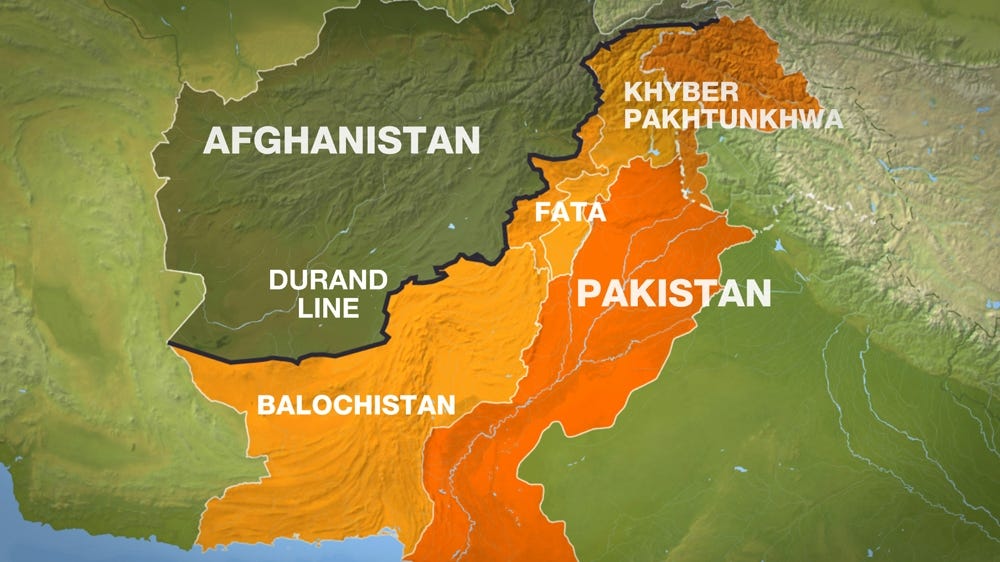
by Ali Khan Bangash 2 January 2024
Pakistan’s enduring battle against terrorism is a multifaceted challenge rooted in historical, geopolitical, and socio-economic complexities. The nation’s porous borders, internal governance issues, and complex relationship with various militant groups have contributed to an environment conducive to extremism, radicalization, and violence.
One of the primary challenges confronting Pakistan is addressing governance deficiencies, corruption, and socio-economic disparities that have perpetuated a cycle of poverty, disenfranchisement, and radicalization among vulnerable populations. Strengthening institutions, enhancing rule of law, promoting accountability, and fostering inclusive development are essential components of a comprehensive strategy to address root causes, build resilient communities, and promote national cohesion. Pakistan’s security forces have undertaken significant counterterrorism operations, targeting militant networks, disrupting illicit financing channels, and enhancing border security through intelligence-driven initiatives, military offensives, and law enforcement collaborations. Operations such as Zarb-e-Azb and Radd-ul-Fasaad have yielded substantial gains in dismantling terrorist infrastructure, disrupting communication networks, and restoring a semblance of stability in conflict-affected regions.
Collaboration with international stakeholders, including the United States, China, and regional partners, remains crucial in bolstering Pakistan’s counterterrorism capabilities, intelligence sharing, and capacity-building initiatives. Strengthening diplomatic engagements, fostering regional cooperation, and promoting multilateral partnerships are essential to address cross-border terrorism, dismantle terrorist sanctuaries, and advance shared objectives in combating extremism, promoting peace, and ensuring regional stability. Afghanistan’s tumultuous history, marked by conflict, instability, and external interventions, continues to shape the nation’s fragile peace process, governance challenges, and security concerns. The Taliban’s resurgence, internal divisions, and external pressures have complicated efforts to foster inclusive governance, uphold human rights, and combat terrorism effectively.
The Taliban-led government’s governance model, characterized by authoritarianism, human rights abuses, and restrictions on women’s rights, has drawn international condemnation, sanctions, and calls for accountability, transparency, and reform. Balancing internal dynamics, external pressures, and international expectations while addressing governance deficits, economic challenges, and security threats remains a formidable challenge for Afghanistan’s leadership. Afghanistan’s strategic location, natural resources, and geopolitical significance have made it a battleground for competing regional interests, including Pakistan, India, China, Iran, and Russia. Navigating regional dynamics, managing external interventions, and fostering constructive engagements are essential to advance Afghanistan’s sovereignty, stability, and economic development while mitigating security threats, promoting regional cooperation, and addressing transnational challenges.
The United States’ engagement with Pakistan and Afghanistan is a critical determinant of regional stability, security cooperation, and counterterrorism efforts. Washington’s evolving policy objectives, strategic interests, and diplomatic engagements underscore the intricate dynamics, divergent priorities, and shared responsibilities that shape the trilateral relationship.
The Biden administration’s emphasis on diplomatic engagement, multilateral cooperation, and regional integration signifies a recalibration of U.S. strategy, priorities, and engagements in South Asia. Enhancing intelligence-sharing mechanisms, fostering law enforcement collaborations, promoting economic development initiatives, and advancing inclusive peace processes are essential components of U.S. efforts to address root causes, systemic challenges, and enduring grievances while upholding international norms, fostering regional peace, and ensuring global security. Navigating geopolitical considerations, managing strategic interests, and fostering constructive engagements among Washington, Islamabad, and Kabul necessitates a delicate balance of diplomacy, security cooperation, and regional partnerships. Addressing trust deficits, aligning policy objectives, and advancing shared interests are essential to mitigate risks, build mutual trust, and forge pathways toward lasting peace, stability, and prosperity in a volatile, interconnected, and rapidly evolving geopolitical landscape.
Addressing root causes, confronting systemic challenges, and fostering inclusive peace processes are essential to navigate the complexities, overcome historical animosities, and build a resilient framework for sustainable peace, stability, and prosperity in South Asia and beyond. By prioritizing shared objectives, leveraging diplomatic channels, and fostering multilateral partnerships, Pakistan, Afghanistan, and international stakeholders can mitigate risks, address systemic challenges, and advance mutual interests in a volatile, interconnected, and rapidly evolving geopolitical landscape. Embracing a collaborative approach, fostering dialogue, and promoting inclusive peace processes are essential to navigate the complexities, mitigate risks, and forge pathways toward a future of peace, stability, and prosperity in a volatile, interconnected, and rapidly evolving global landscape.
